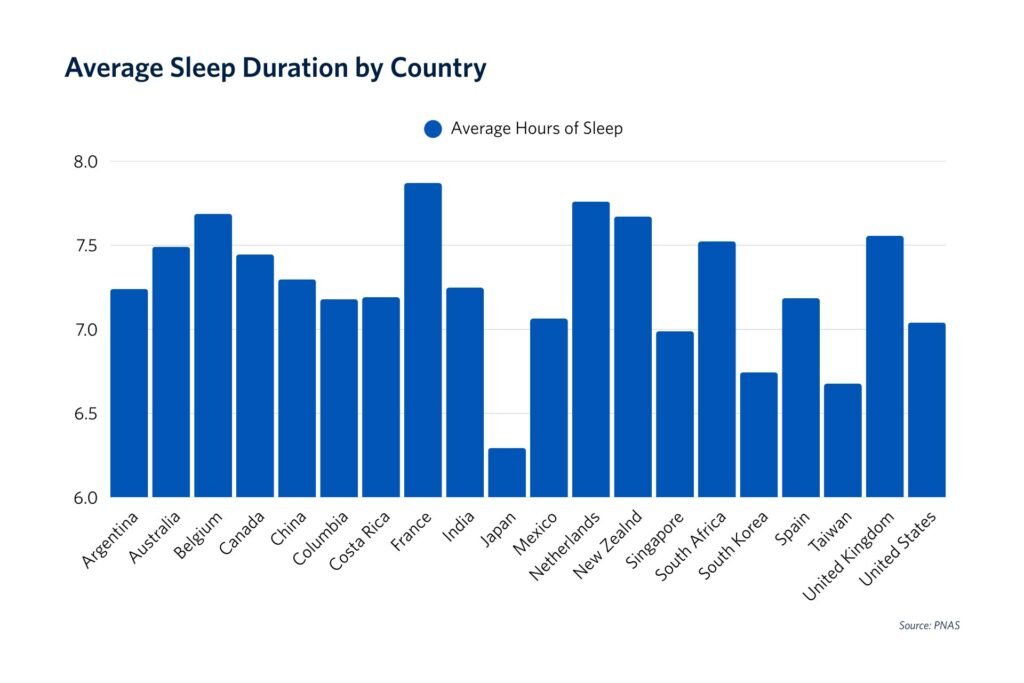Your optimal amount of sleep may vary depending on where you live, according to a recent study conducted by researchers at the University of British Columbia. The study, published in the Proceedings of the National Academy of Sciences, analyzed sleep data and health outcomes for nearly 5,000 individuals in 20 different countries. The results showed that the number of hours of sleep needed for good health differs significantly across various cultures, challenging the notion that a one-size-fits-all approach to sleep recommendations is effective.
Lead author Dr. Christine Ou, assistant professor in the school of nursing at the University of Victoria, noted that despite the common advice to aim for eight hours of sleep per night, cultural norms play a crucial role in determining the ideal amount of sleep for individuals. The study revealed that average sleep durations vary widely from country to country. For example, participants in Japan reported an average of six hours and 18 minutes of sleep, while those in France slept an average of seven hours and 52 minutes. In Canada, the average sleep duration was seven hours and 27 minutes.
Interestingly, the researchers found that there was no evidence to suggest that individuals in countries with shorter sleep durations experienced poorer health outcomes compared to those in nations where people slept longer. Instead, the study highlighted the importance of aligning one’s sleep habits with their cultural norms. People who slept in accordance with their culture’s sleep duration recommendations tended to have better overall health.
The research also indicated that individuals in all 20 countries studied were sleeping at least one hour less than what was considered optimal for their respective cultures. This underscores the need to consider cultural context when making recommendations about sleep and public health guidelines. Tailoring sleep recommendations to fit the cultural norms of different populations may lead to improved health outcomes.
The data for the study was collected from individuals in North America, Europe, Asia, Africa, and South America, providing a diverse representation of global sleep patterns. The findings suggest that a one-size-fits-all approach to sleep recommendations may not be effective and that cultural factors should be taken into account when promoting healthy sleep habits.
For more information on this study, you can access the publication in the Proceedings of the National Academy of Sciences. This research sheds light on the importance of understanding cultural differences in sleep habits and emphasizes the need for personalized sleep recommendations based on individual cultural contexts.


